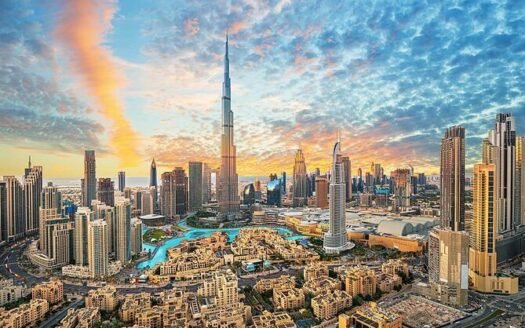GCC Real Estate Trends in 2024: How Remote Work is Reshaping the Commercial Property Market
As the world continues to adjust to the post-pandemic reality, remote work has become a permanent fixture for many industries. In the Gulf Cooperation Council (GCC) region, this shift is having a profound impact on the commercial real estate market, with businesses rethinking their office space requirements and developers responding to new demands. In 2024, the GCC’s commercial real estate market is adapting to these trends, reshaping how office spaces are designed, leased, and utilized.
1. The Impact of Remote Work on Office Space Demand
With the widespread adoption of remote and hybrid work models, many businesses across the GCC are reconsidering their need for large office spaces. Companies are downsizing their traditional office footprints, opting for smaller, flexible office spaces that cater to a more mobile workforce. This shift has caused a drop in demand for large office buildings, as companies increasingly look for co-working spaces or short-term leases to accommodate their hybrid teams.
According to recent market analysis, the GCC commercial real estate market is projected to grow, but the nature of this growth is evolving. The demand for flexible office spaces and shared work environments is rising, as businesses prioritize cost efficiency and adaptability. The growing importance of flexibility in real estate decisions reflects how remote work is transforming the office space landscape (IMARC Group).
2. Co-Working Spaces and Flexibility
The surge in demand for co-working spaces is one of the most significant changes in the GCC’s commercial real estate market. Co-working environments offer companies the ability to scale their office space needs up or down depending on workforce size and business requirements. This model provides a cost-effective solution for businesses that no longer need a permanent, large office space due to remote work arrangements.
Developers are responding to this trend by creating high-tech co-working spaces equipped with modern amenities, offering flexibility for businesses of all sizes. In cities like Dubai, Riyadh, and Doha, these co-working spaces are becoming integral to the commercial real estate landscape, providing businesses with short-term leases, shared meeting rooms, and a community-oriented work environment (Ascendix Tech).
3. Hybrid Work Models: Redefining the Office Space
While remote work has reduced the need for full-time office spaces, the rise of hybrid work models—where employees split their time between the office and home—has created demand for smaller, adaptable office spaces. Companies are opting for offices designed for collaborative work, where employees come together for meetings, brainstorming sessions, or team-building activities.
As a result, developers are designing flexible office layouts with open-plan areas, modular furniture, and cutting-edge technology to support hybrid teams. These spaces prioritize collaboration, creativity, and comfort, catering to the changing needs of the modern workforce. The ability to offer flexible leasing terms is also critical, as companies want to retain the option to scale their office space based on future needs (D&B Dubai).
4. Sustainable and Smart Office Spaces
In addition to flexibility, sustainability and smart office technologies are emerging as key trends in the GCC’s commercial real estate market. Developers are increasingly incorporating energy-efficient designs, green building technologies, and smart systems into their projects. These features not only reduce operational costs but also appeal to companies looking to enhance their environmental footprint.
Moreover, smart office technologies—such as automated lighting, climate control systems, and touchless access points—are making workspaces safer and more efficient. These innovations align with the growing demand for health-conscious, sustainable work environments that cater to the evolving expectations of employees and businesses in a post-pandemic world (UAE News 247).
Conclusion
The commercial real estate market in the GCC is undergoing a significant transformation as remote work and hybrid work models reshape demand for office spaces. Developers are responding by offering flexible, tech-enabled, and sustainable workspaces that cater to the changing needs of modern businesses. As the market continues to evolve, co-working spaces, flexible leases, and smart office solutions will play a pivotal role in driving growth in the GCC’s commercial property sector.
Somi Finance: Keep up to Date with Dubai’s Real Estate Progress
Read more about how economic growth is influencing real estate prices in Dubai by visiting the full article here.
Learn the newest trends and profiles of potential at Somi Finance for two significant industries of Dubai – the financial industry and the real estate industry.







